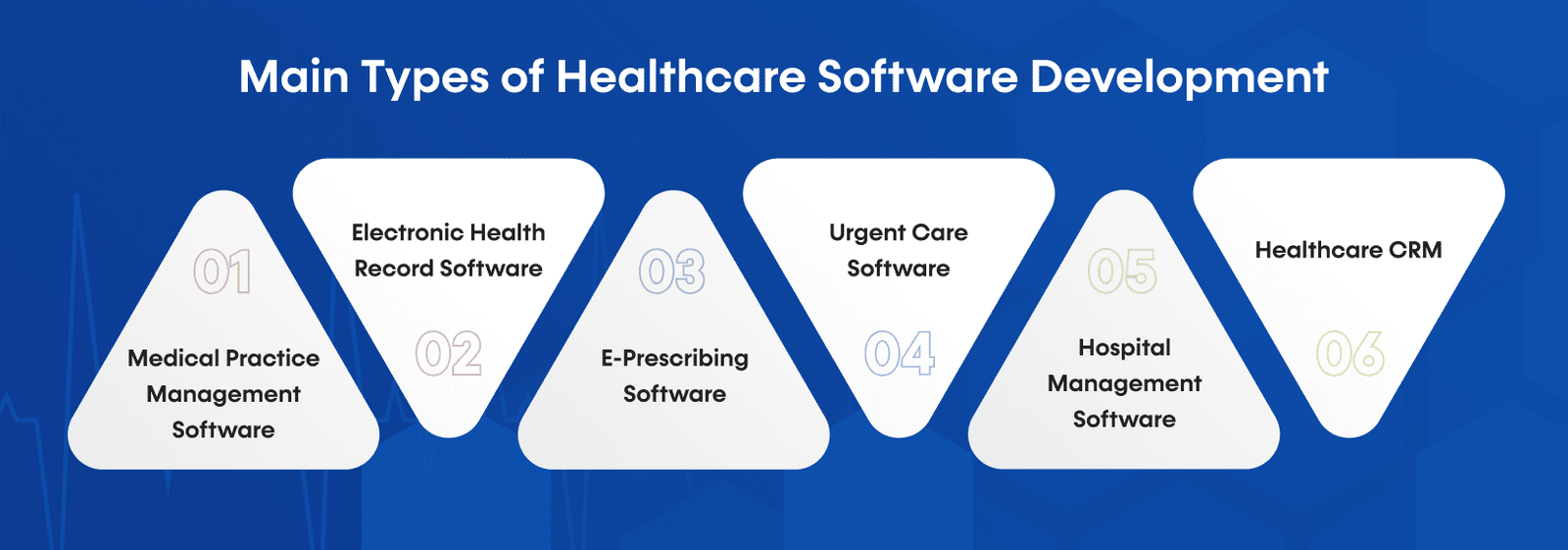The healthcare industry has seen incredible transformation since the rise of technology. Be it through devices that aid in medical procedures or software that streamline healthcare workflow, a lot has happened in a matter of decades.
But has it been an easy journey?
The healthcare sector has been notorious for being slow to accept technology into its folds. It is understandable as numerous challenges come in the way. The nature of the healthcare industry does not allow the luxury of choosing novelty over efficiency.
But we have advanced so much that we can now provide the best ways to overcome these challenges.
In this article, we discuss some of the challenges faced in healthcare software product development. Our experts also offer the best solutions that can help fix the issue.
#1 Navigating the World of Compliance and Regulations in Healthcare Software Development
Challenge
Managing the complex regulatory landscape of healthcare is not easy. It involves understanding and adhering to numerous medical regulations. It is easily one of the biggest challenges faced in healthcare software product development.
Different regions have different laws and standards that govern the privacy, security, and quality of healthcare data and software. For example, in the US, there is the Health Insurance Portability and Accountability Act (HIPAA), while in the EU, there is the General Data Protection Regulation (GDPR). Failing to comply with these regulations can result in hefty fines, legal actions, and reputational damage.
Medical software development teams often face the challenge of tackling these healthcare regulatory compliances.
Solution
To overcome this challenge, the healthcare software development team needs to engage in continuous learning, keeping up with ever-changing regulations and best practices. They also need to work with experts who understand the healthcare application categories and regional requirements, such as medical device classification, data protection, and clinical validation.
Moreover, they need to adopt standards like HL7 FHIR, MedMij, and DICOM to ease the compliance process and ensure interoperability with other systems. These standards provide a common framework for exchanging, storing, and processing healthcare information.
#2 Care Mobility and Scalability in Healthcare Software
Challenge
Adapting to the rapidly changing expectations of patients and healthcare professionals is another challenge faced in healthcare software product development. Patients want to access their health information and services anytime, anywhere, and on any device.
Healthcare professionals want to use software that is compatible across devices and platforms. It should also have the ability to scale up or down as needed.
However, developing software that can meet these demands is not easy. It requires considering various factors. These include user interface design, performance optimization, data synchronization, security, and compatibility. It also requires testing the software on different devices and platforms, and ensuring that it can handle varying loads and traffic.
Solution
To overcome this challenge, healthcare developers need to focus on cross-platform applications and Progressive Web Apps (PWAs). PWAs can provide a seamless user experience regardless of the device or platform. Cross-platform applications are those that can run on multiple operating systems, such as Windows, iOS, Android, etc. PWAs are web applications that can be installed on the user’s device and offer features such as offline access, push notifications, and fast loading.
By using these technologies, healthcare software developers can ensure that their software is accessible, responsive, reliable, and scalable. They can also reduce the development time and cost by using a single codebase for multiple platforms.
#3 UI/UX Design in Healthcare Product
Challenge
Designing healthcare apps is used by all kinds of people. It has to be genuinely helpful, responsive, and have an intuitive UI/UX design. This is oftentimes another challenge faced in healthcare software product development.
Many healthcare apps fail to address the real needs and preferences of patients, such as convenience, accessibility, personalization, and engagement. They also fail to provide a user-friendly and attractive interface that can enhance the user experience and satisfaction.
Solution
To overcome this challenge, healthcare app and software developers need to integrate interactive communication tools, such as video conferencing, online appointments, and voice chats. It should be able to enable better communication and collaboration between patients and healthcare professionals.
They also need to continually refine the healthcare UI/UX design by collecting feedback from both patients and healthcare professionals and applying user-centric design principles and best practices. By doing so, they can ensure that their healthcare apps are helpful, engaging, and easy to use.
#4 Privacy and The Risk of Medical Data Breaches in Software Development
Challenge
There is a lot of sensitive data involved in the healthcare industry. Ensuring the utmost security and privacy of critical medical data is another challenge faced in healthcare software product development. Medical data is highly sensitive and personal, and it can be subject to various threats, such as cyberattacks, data breaches, unauthorized access, and misuse.
These threats can compromise the confidentiality, integrity, and availability of medical data, and cause serious harm to patients and healthcare organizations.
Solution
To overcome this challenge, the healthcare IT expert team needs to implement comprehensive security measures, from the interface level to deeper layers. They need to employ multi-factor authentication, automatic log-offs, and data encryption. One can also integrate seamlessly with systems like HIS, RIS, and PACS for secure medical data access.
They also need to follow the best practices and standards for data protection and security, such as HIPAA, GDPR, ISO 27001, etc. By doing so, they can ensure that their healthcare software is secure, compliant, and trustworthy.
#5 Specific Customization Needs for Healthcare Software
Challenge
Every healthcare provider has unique requirements. Standard software rarely cuts it. Healthcare providers have different workflows, processes, policies, and preferences that need to be reflected in their software solutions. Standard software might not be able to accommodate these specific needs. This is a major challenge that can result in inefficiency, frustration, and dissatisfaction.
Solution
To overcome this challenge, custom healthcare software developers need to collaborate with business analysts experienced in eHealth projects. By understanding the specific needs of each healthcare provider, developers can tailor software solutions that meet their expectations and requirements.
Customized healthcare software solutions can result in more effective medical software development, as they can improve functionality, usability, performance, and compatibility. They can also provide a competitive edge and a unique value proposition for healthcare providers.
#6 Data Integration in Health Software Product Development
Challenge
There are a lot of types of data sources in healthcare facilities. It can lead to integration issues.
Healthcare data can come from various sources, such as electronic health records (EHRs), laboratory information systems (LISs), medical imaging systems, wearable devices, and mobile apps. These data sources can have different formats, standards, and protocols, making it difficult to integrate and synchronize them.
Data integration issues can affect the quality, accuracy, and completeness of healthcare data, and hamper the decision-making and coordination of care.
Solution
To overcome this challenge, health tech developers need to prioritize the development of software that offers seamless integration and synchronization across different systems. They need to use common data models, formats, and standards, such as HL7 FHIR, MedMij, and DICOM, to facilitate data exchange and interoperability. They also need to emphasize the advantages of medical device software that can reduce errors and ensure real-time monitoring.
In a Nutshell
There are numerous challenges in the world of medical software product development. But in the hands of an expert, these challenges can be deftly overcome. If you are in the process of custom healthcare software development for your healthcare facility, we hope reading this blog will give you some direction on identifying the key obstacles in your way and what you can do to overcome them.
The better way to do it is to hire experts who can handle this from start to finish. At EMed HealthTech, we have been the preferred healthcare software development partner of many organizations and startups. With our end-to-end services and custom approach, we can bring your software product to life. Get in touch with us today to discuss your project!














